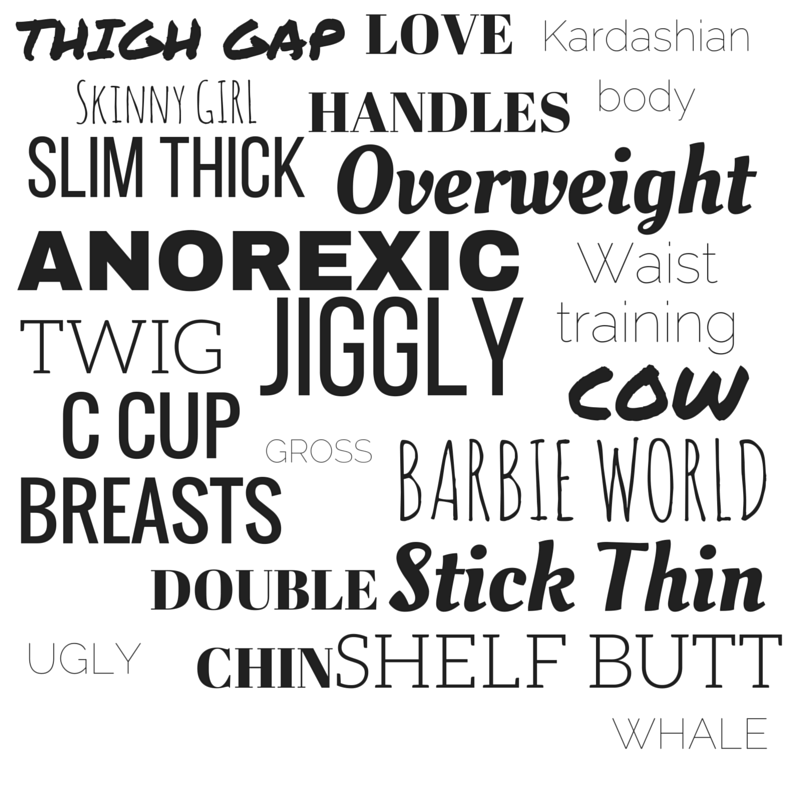The fat acceptance movement is unhealthy
May 22, 2016
It’s not about having the Kardashian body.
It’s not about having a big butt.
It’s not about having big breasts.
It’s not about having a thigh gap.
It’s not about having a flat stomach.
It’s not about waist training.
It’s not about having thick thighs.
It’s not about Fetty’s “slim thick” ideal body.
Don’t fall for all of this.
Artists are playing us to make money.
It’s about being healthy.
For the past two years, especially on social media, a huge push for the body love movement supported women of the larger size to be proud of their form. Now, advertisements, models and the music industry are growing an appeal to the plus size community.
While a positive movement, the wide acceptance says it is okay to have a little “extra.” Though, some pop culture artists like Nicki Minaj degrade skinny women in songs like “Anaconda.” Their rhetoric diminishes their cause which is for all women to accept and love their bodies. They simply degrade the opposite of their body shape. In the music industry, the topic of body shapes has been covered before in Sir Mix-A-Lot’s song “Baby Got Back” which is an ode to a bigger booty, not a comparison.
When you compare two extremes it leads to a war on a body shape which leads to an acceptance and an actual identity or pride for something that is truly unhealthy. Currently, women are accepting a body shape over their health to look and feel beautiful. What is hot in pop-culture is to love the love handles, stretch marks and jiggly thighs. The new hot look for bodies should be a healthy heart and a healthy life. Therefore, the fat acceptance movement should not be supported because accepting obesity as something to take pride in is unhealthy, and it does not promote the self-love of all HEALTHY body types.
Let’s move to the middle. Being deadly skinny and being deadly fat is not good. Neither a deadly skinny body nor deadly fat body is good. Neither are healthy.
What is a healthy body?
There is a spectrum of body types the medical field recognizes. A person’s Body Mass Index (BMI) lets doctors know what part of the range a person’s body falls in. A BMI also clues doctors in to know what health risks a patient experiences. A normal healthy BMI range is 18.5-24.9, according to the American Cancer Society. The BMI doesn’t determine the shape of someone’s body. A girl can still have a little extra or a little less and still be healthy.
Instead of supporting the fat acceptance movement, society should shift its focus to accepting a movement where being healthy is encouraged with understanding that there is a spectrum of what a healthy body is. Being grossly obese is becoming acceptable, when frankly it is not. Obesity causes many health issues. According to WebMD, obesity is linked to seven different health risks including heart disease, diabetes and cancer. Promoting the fat acceptance movement does not promote a healthy body, but instead promotes inappropriate behaviors such as overeating and laziness, which has been linked to a coping mechanism for depression, according to the Journal of Lancaster General Hospital.
Obesity is not just a physical issue either, it’s a psychological issue as well. A study done by Jennifer C. Collins, M.A., M.S. and Jon E. Bentz,Ph.D., Lancaster General Neuropsychology Specialists, on Behavioral and Psychological Factors in Obesity points that obese people struggle with taking comments, attitudes and perceptions interpersonally.
“Obese individuals are often aware of these negative views, and internalize them, putting themselves at risk for disorders of mood, anxiety and substance abuse,” stated by Collins and Bentz. “They perceive interpersonal and work-related discrimination, often suffer from low self-esteem as a result and feel uncomfortable with their bodies (i.e. body image dissatisfaction).”
Obese people struggle with depression and low-self esteem, but instead of working to become mentally and physically healthy the fat acceptance movement may further perpetuate it.
The “body-loving campaign” argues that society shouldn’t lessen women for their size as well as women should be confident in their curves. It is widely supported by various feminist groups that promote female empowerment. Mary Lambert, a major contributor to the campaign, started the ongoing hashtag #BodyLove, which gives reasons why women should love their curves, one mainly being that men like curvy women. This logic is ineffective due to the fact that the empowered women who support this movement are subjegating themselves to be viewed as sexual objects to men, even though their part of their purpose is to remove society’s perception that women are sex objects.
Women and men should love their bodies and be confident, but women and men shouldn’t love cancer, diabetes and heart disease more than they love living their life. The body-love campaign has brought the love of health risks. Men and women should love being healthy.

